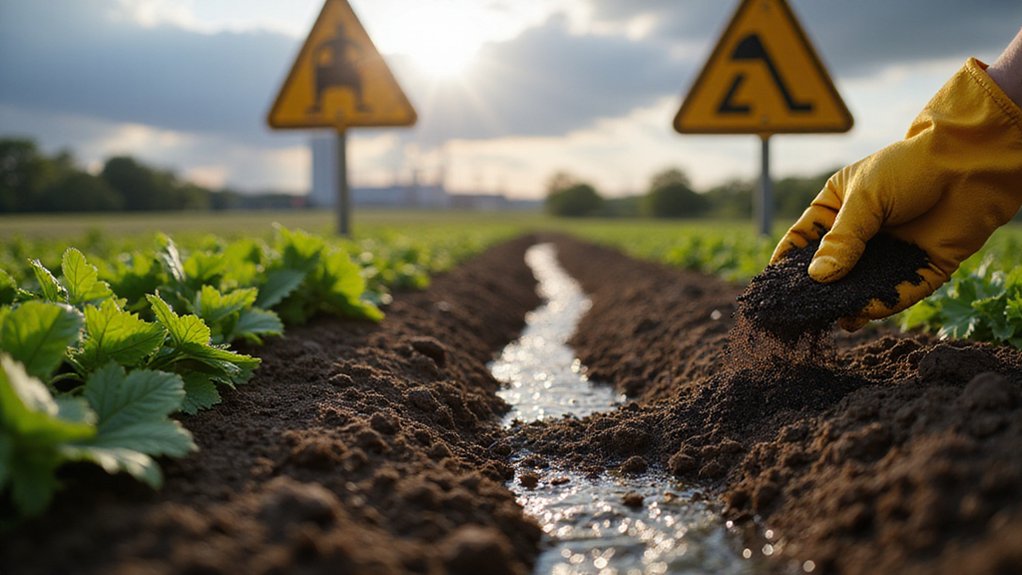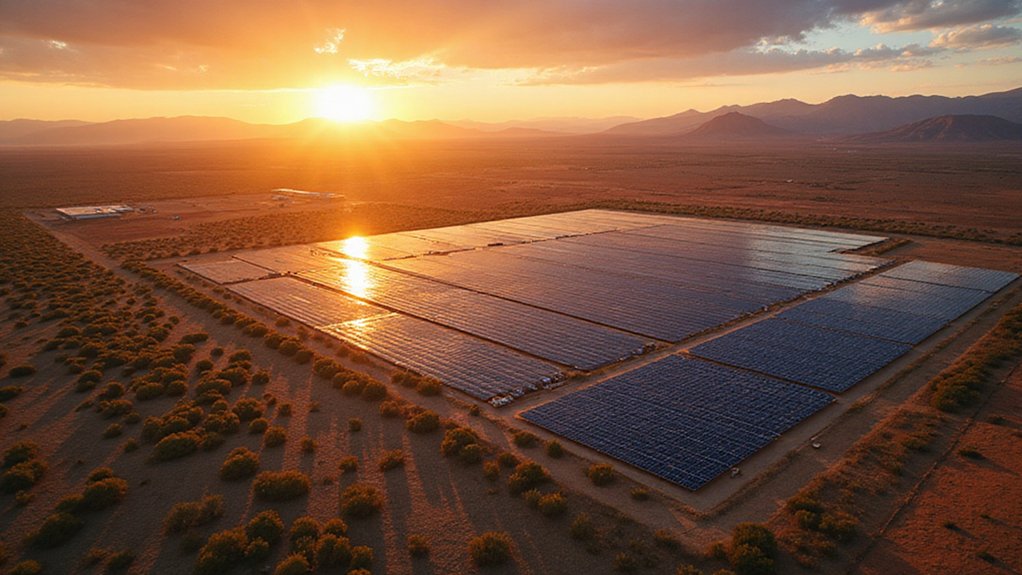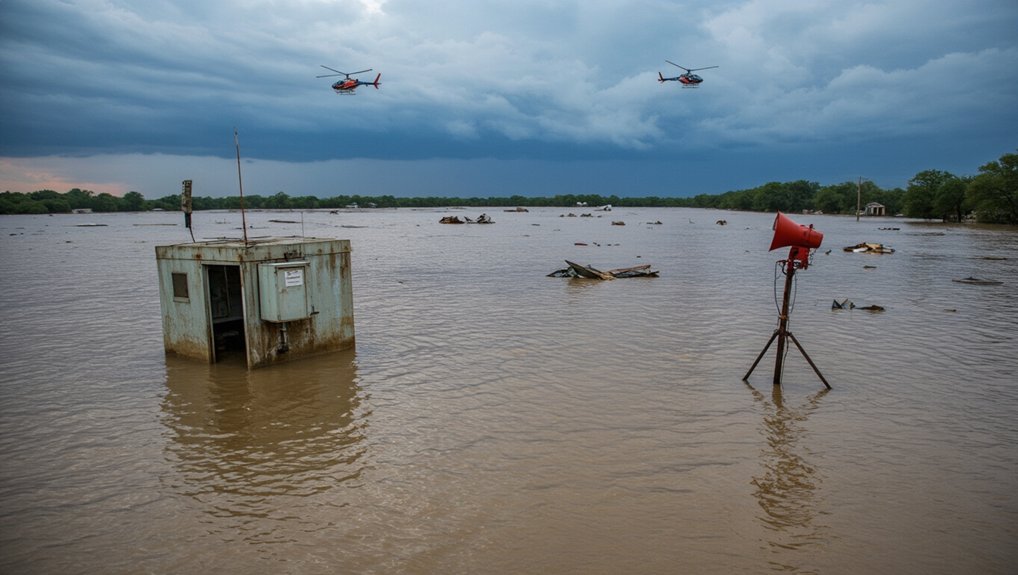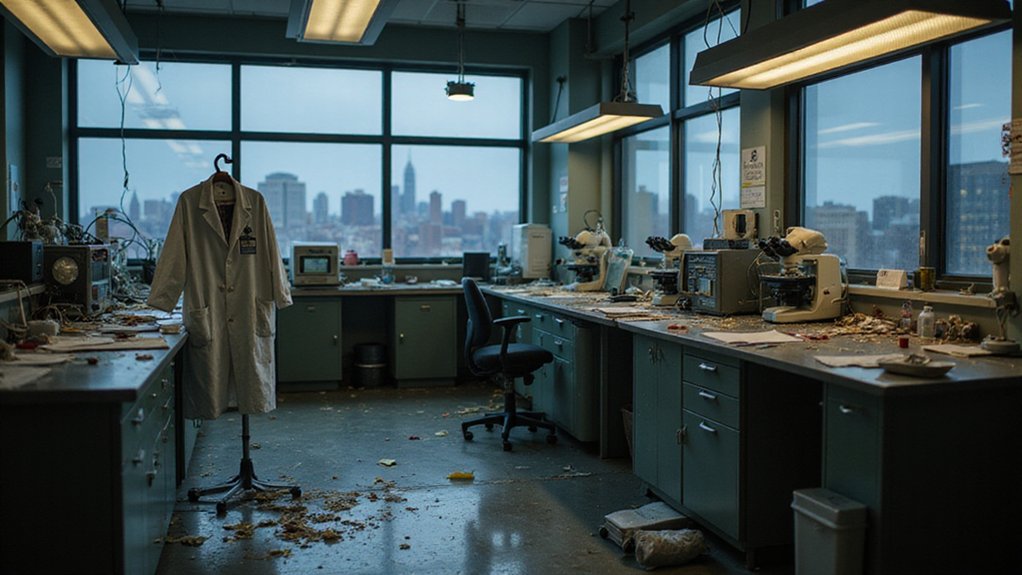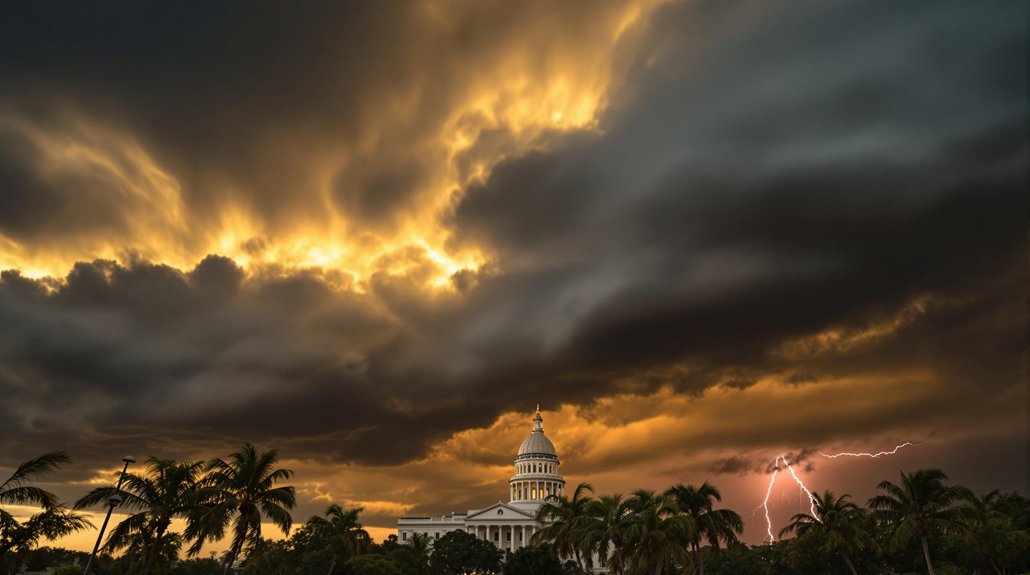Maryland faces growing criticism as Virginia rejects sewage sludge shipments containing PFAS, or “forever chemicals.” These toxins pose risks to human health, wildlife, and water systems when used in biosolid fertilizers. State officials can’t agree on safe contamination levels, and testing requirements remain unclear. Meanwhile, farmers and gardeners aren’t told what’s in their fertilizer products. The question now: how will Maryland dispose of this waste while protecting public safety?
Every day, thousands of Maryland residents spread fertilizer on their gardens, lawns, and farms without knowing what’s really in it. Recent tests show these fertilizers, made from sewage sludge, contain dangerous chemicals called PFAS, also known as “forever chemicals.” These don’t break down in nature and can harm people’s health.
A 2021 study found that all tested biosolid fertilizers contained between 14 and 20 different PFAS chemicals. These products, sometimes labeled as “organic,” don’t list these toxic ingredients on their packaging. Buyers have no way to know about the chemicals they’re putting in their soil.
The problem has grown as Virginia recently began turning away Maryland’s sewage sludge shipments. This action followed growing concerns about contamination risks to soil, water, and food crops. The chemicals don’t just stay where they’re applied – they can wash into streams that feed the Chesapeake Bay.
For Maryland towns, selling sewage sludge as fertilizer has been a money-maker. Wastewater utilities earn revenue from this practice, which helps fund their operations. Similar to Milorganite’s $12.2 million revenue generation in 2023, many utilities depend on these sales to support their budgets. It’s also cheaper than sending the waste to landfills. Farmers like these fertilizers because they cost less than alternatives.
Health experts worry about long-term exposure to these chemicals. PFAS has been linked to cancer, immune system problems, and developmental issues. Wildlife and aquatic life face risks too when these chemicals enter their habitats.
While Maine banned the land use of biosolids in 2022 because of PFAS concerns, Maryland’s efforts to limit these chemicals failed in early 2025. The Maryland Senate Committee rejected Bill 732 that would have restricted PFAS levels in treated sewage sludge despite growing health concerns. Environmental groups are now pushing harder for better rules, testing, and public information about what’s in these products.
As awareness grows about the hidden dangers in seemingly harmless fertilizer, Maryland faces tough choices about how to balance waste management needs with public health and environmental protection.
References
- https://www.wusa9.com/article/tech/science/environment/forever-chemical-legislation-maryland-fails/65-9fec0c27-9fe0-45f5-a562-2d41bc466f0e
- https://www.circleofblue.org/2025/supply/water-quality/pollution/fertilizer-from-sewage-a-utility-money-maker-faces-uncertain-future/
- https://beyondpesticides.org/dailynewsblog/2021/06/sewage-sludge-fertilizers-sold-at-hardware-stores-found-to-be-contaminated-with-pfas-chemicals/
- https://ccl.northwestern.edu/2018/2018_Book_BeachManagementTools-ConceptsM.pdf
- https://dokumen.pub/simon-and-schuster-handbook-for-writers-11nbsped-9780134172828-0134172825-013470133x-9780134701332-013471380x-9780134713809.html
